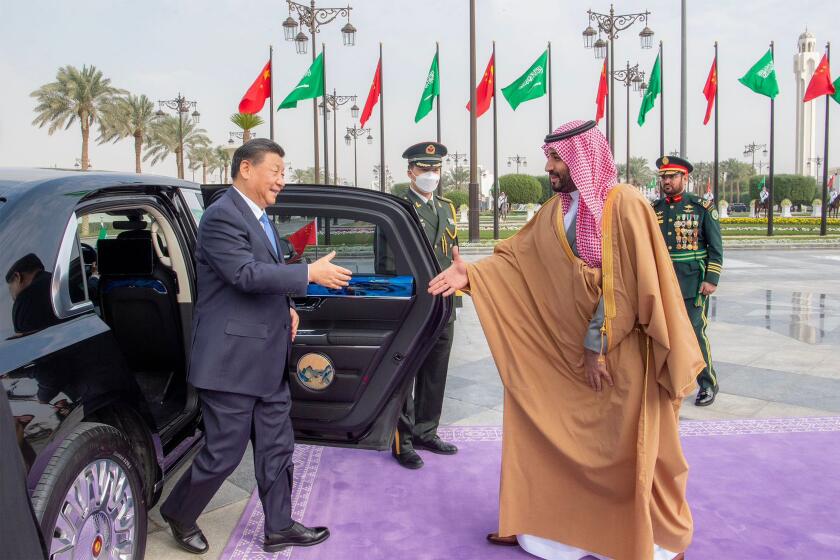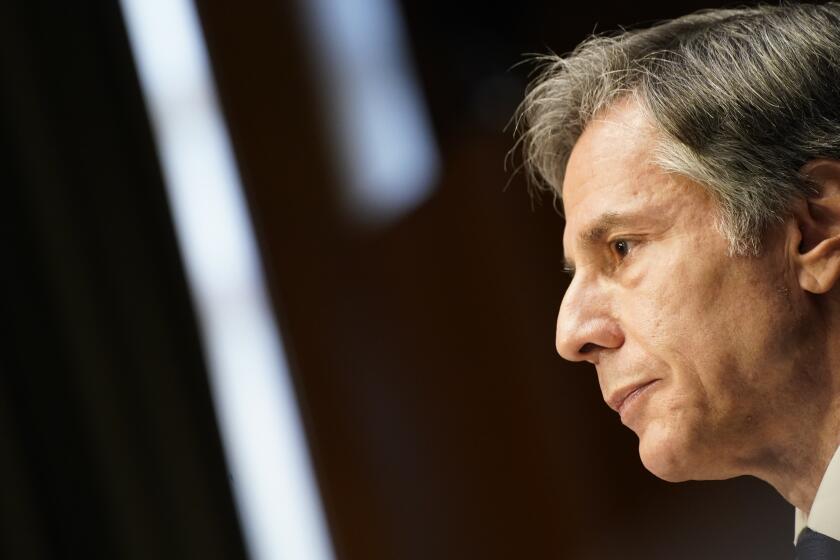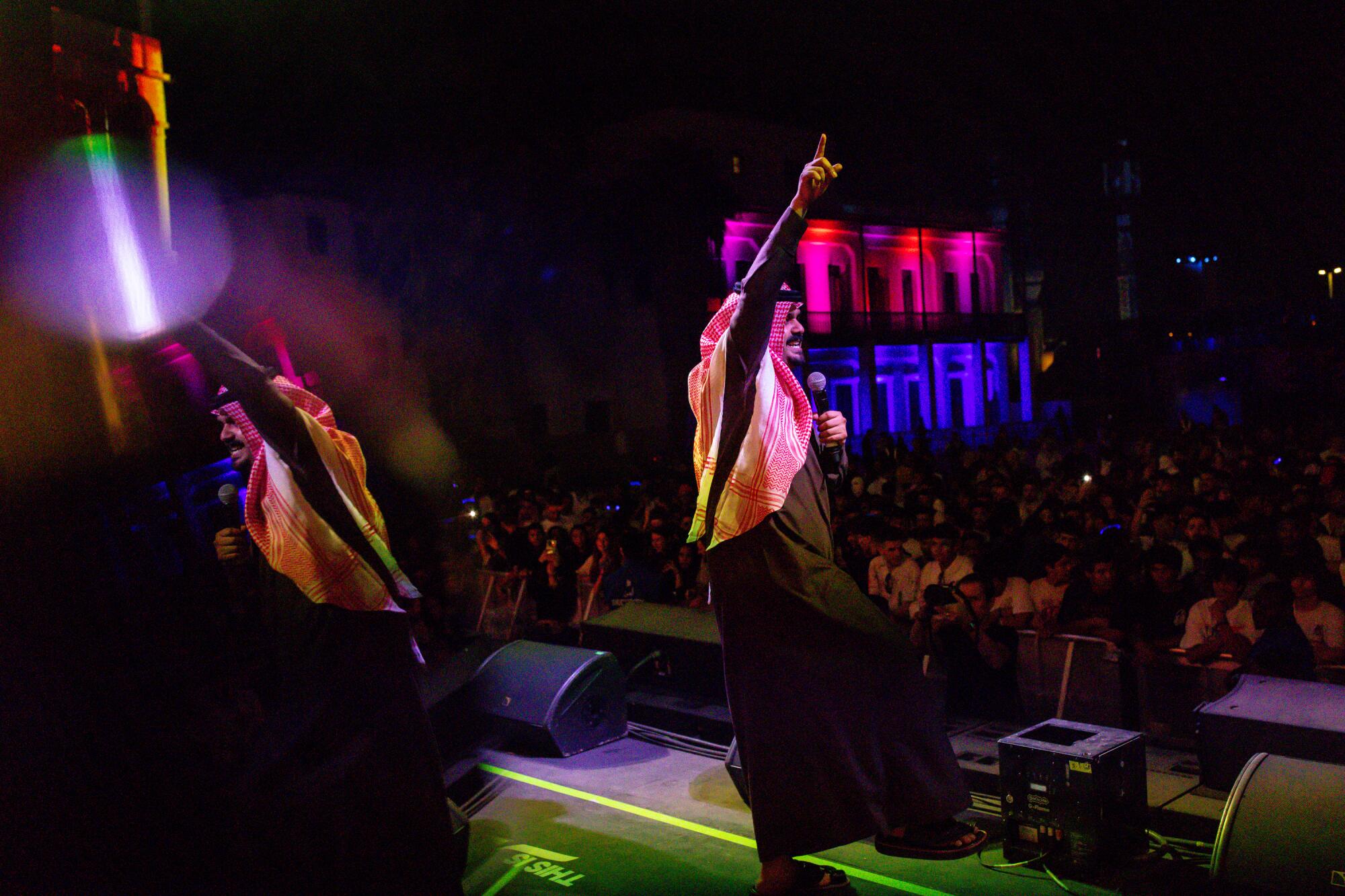
- Share via
JEDDAH, Saudi Arabia — Standing in a maelstrom of swirling smoke and spotlights, Nouf Sufyani, the 29-year-old Saudi DJ better known as Cosmicat, sang along to Fatboy Slim’s “Right Here, Right Now.” She looped a snippet of the melody, letting the tension build before grabbing the mic and shouting to the cheering, dancing crowd: “Right here, right now — we’re Jeddah!”
It was the second night of Balad Beast, a two-day rave held earlier this month in Saudi Arabia’s second-largest city. The event was part of Soundstorm, a series of state-backed music festivals that began in 2019 and has since brought dozens of international artists to the country, including Bruno Mars and top-flight DJ Solomun.
Fawaz Utaibi, a 26-year-old English-language teacher, was excited to cut loose in Jeddah’s Balad, or Old Town, where an animated image of a giant cat’s head was projected onto the coral-stone buildings, nodding to the beat. Five years ago, “there was nothing to do here — the only reason you’d come was to buy traditional goods. Now you can celebrate,” he said.
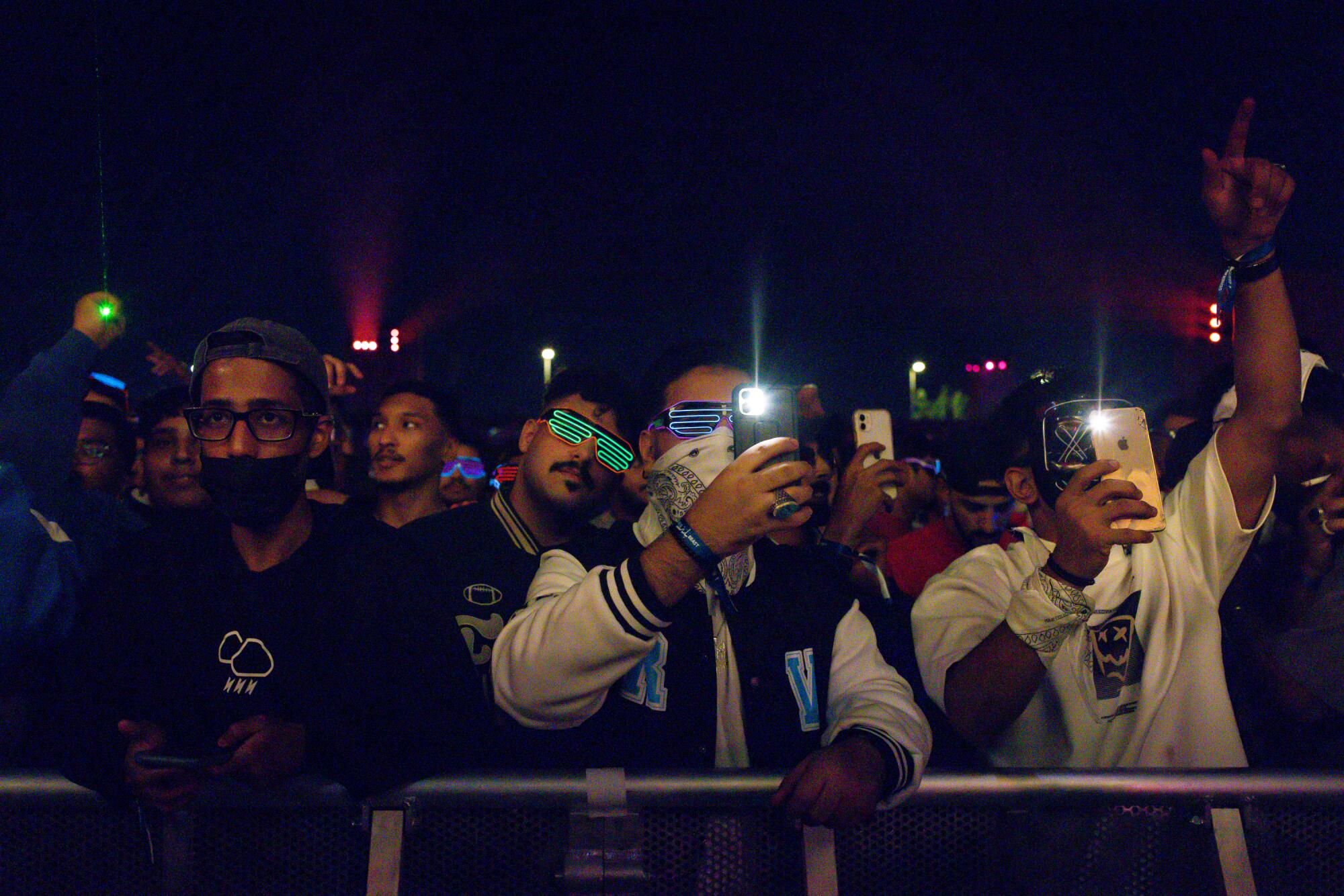
“Look around you. It sounds crazy: We’re partying in Saudi.”
Balad Beast is of a piece with Vision 2030, the all-out transformation of Saudi Arabia that the country’s de facto ruler, Crown Prince Mohammed bin Salman, launched soon after he became heir to the throne in 2017. Its aims include diversifying Saudi Arabia’s oil-dependent economy and revamping its long-held image from a puritanically religious kingdom inaccessible to outsiders into a regional entertainment mecca.
The campaign’s main target is the two-thirds of the Saudi populace who are under the age of 35. The crown prince — himself only 37 — wants his peers to live, work and play at home rather than leave for jobs abroad or spend billions of dollars every year seeking out fun in places such as Dubai or Manama, the capital of Bahrain.
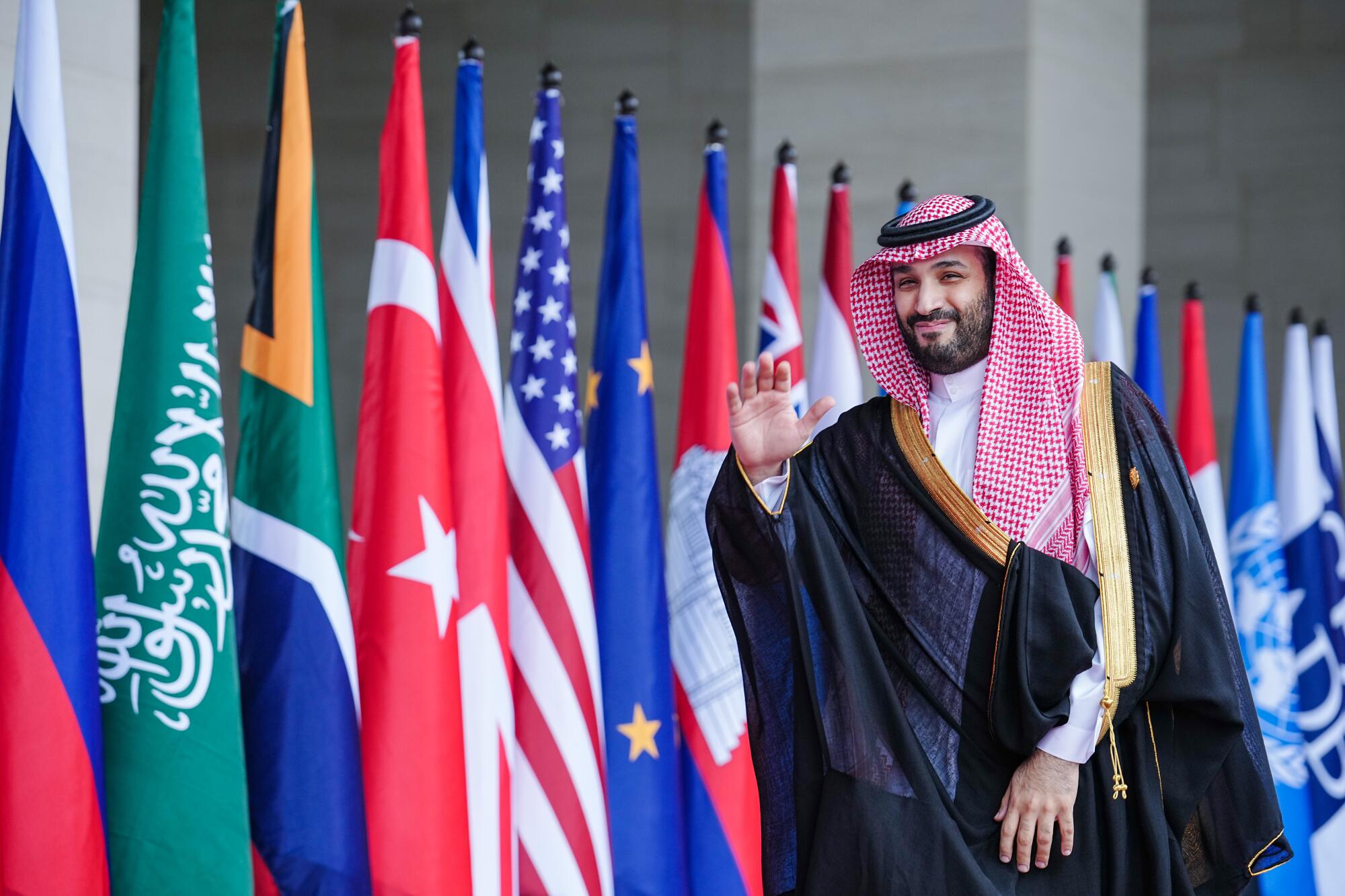
The swiftness of the changes in Saudi Arabia has residents long used to its sleepy social life blinking in shock, like Dorothy stepping out of her sepia-toned Kansas house into Technicolor Oz. December’s calendar alone featured Balad Beast, the Red Sea International Film Festival, the Dakar Rally, the Riyadh Season — a monster lineup of concerts and sporting events — and the Boulevard Riyadh, a sort of world fair in the Saudi capital with pavilions showcasing foreign countries, including the U.S., which was represented by a chunk of interstate highway asphalt, a Magnolia Bakery and a police cruiser.
Supporters of the crown prince, who was recently named prime minister, praise him as the only leader with the chutzpah and authority to push through such a profound makeover of Saudi society. Here at Jeddah’s Balad Beast, in a scene unthinkable only a few years ago, Utaibi stood sipping a mocktail alongside a female friend who wore no hijab; other revelers sported jeans, shorts, crop tops, even mesh shirts. Electronic music blasted from billboard-sized speakers as a female performer belted out tunes onstage. Men and women danced together.
“Unless you grew up here, you wouldn’t understand the magnitude of what we’re doing,” said Ahmad Ammary, 44, the DJ and music producer who developed Soundstorm.

But critics say the strides in social liberalization have been accompanied by the cementing of a politically illiberal climate with a single person in charge: the crown prince. They liken his rule to the more centralized Arab dictatorships in Egypt and Syria, in a break with the more consultative system the kingdom used to employ.
They also accuse the crown prince of using extreme measures to neutralize anyone opposed to or even insufficiently enthusiastic about his policies, such as Saudi journalist and U.S. resident Jamal Khashoggi, who was killed by a Saudi hit team at the Saudi Consulate in Istanbul in October 2018. The U.S. has concluded that the crown prince ordered the brutal slaying, which he denies.
Last summer, two Saudi women were sentenced to 34 and 45 years in prison essentially for expressing dissent on social media, according to human rights organizations, which noted that the sentences were the longest ever handed to activists. Saudi officials said the cases go beyond social media activity but did not elaborate.
The political atmosphere is such that, in interviews, people willing to criticize government policies — saying that tourism revenue could never supplant oil proceeds, or that spending on flashy entertainment projects ignores more pressing infrastructure problems — refused to do so on the record. On Twitter, the social network of choice in Saudi Arabia, previously critical accounts have been suspended or deleted or now stick to safe topics.
China spies an opportunity to draw closer politically and economically to Saudi Arabia as ties between the U.S. and the oil-rich kingdom falter.
Also cowed is the once-mighty clerical class whose support undergirded the ruling Saud family’s power. Imams who have spoken out against the liberalization have been put in jail. Even the mutaween, the infamous religious police who ran patrols to ensure people behaved according to a strict moral code — smashing music equipment and castigating women for wearing makeup — now parrot the government line that they had overstepped their mandate and are content with encouraging rather than imposing their version of virtuous living.
That a political crackdown has accompanied a social opening up may seem contradictory, but analysts say the crown prince sees it as a necessary complement.
“The Saudi leadership thinks they have no choice because they can’t develop a post-hydrocarbon economy without these liberalizations and turning Saudis from dependent subjects to wealth-producing citizens,” said Hussein Ibish, a resident scholar at the Arab Gulf States Institute in Washington. “But they also see it as dangerous to the regime” — as potentially setting in motion forces they cannot control.
Although the crown prince’s harsh authoritarian streak is troubling, most of the changes he’s effected are “incredibly important,” Ibish said. “He’s truly transforming the country, mostly for the far better.”
It’s clear that many Saudis see the crown prince’s policies as a long-overdue coming-out party for young people.
“From the outside, this is what people think of Saudi Arabia: Mecca, Medina, hajj, umrah, religion. It’s part of our fabric,” said Ammary, the Soundstorm organizer, referring to Islam’s two holiest sites and the pilgrimages that Muslims undertake. Those associations, he said, brought an expectation of how Saudis behaved in public.
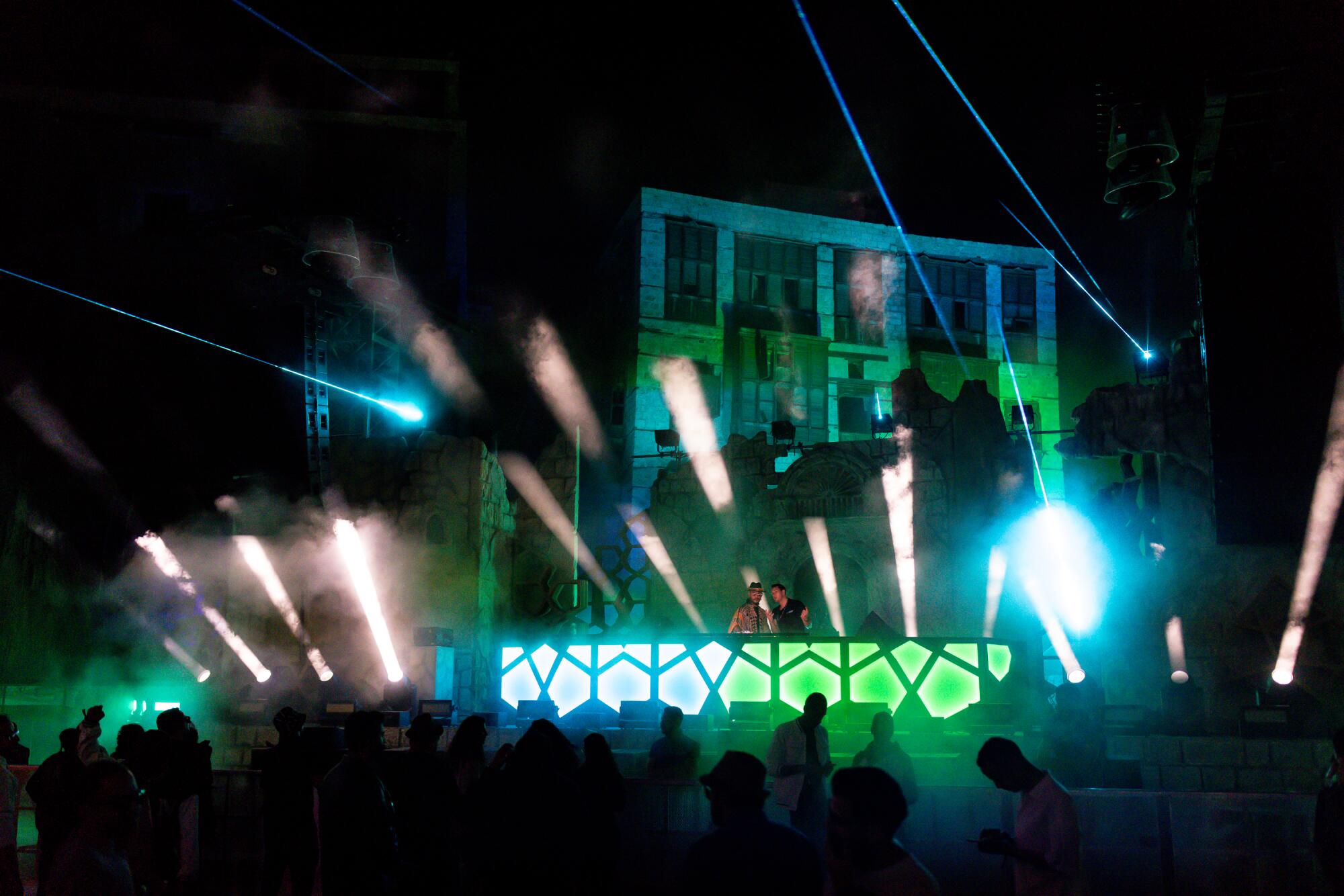
“Growing up, we were encouraged to not stand out. Whenever I would come home for a visit, I’d switch to the Saudi version of myself: Be calm, straightforward, proper. Don’t smile too much,” said Ammary, who spent time living in the U.S.
Though he’s been a DJ since 1997, it wasn’t something he was “built to be proud of.” He played at private parties for a small community of friends. The first edition of the Soundstorm festival was “a social experiment,” he said, during which he was surprised to find so many underground groups.
“This community went from paranoid tiny pockets to people that can do this with pride, with joy, with no fear. I’m proud of the Band-Aid we’re ripping off our culture,” he said, adding: “It’s not a change. It was always there, but we were hiding.”
Other signs of that unveiling, both literal and figurative, are inescapable. At Balad Beast, three 21-year-old women without hijabs, law students Leen, Jood and Lujain, remarked how their childhood had been about keeping a segregated existence from males, who nonetheless controlled their lives — how they dressed, where they worked or went out, whether they stayed married. The last few years saw the ban on women driving lifted and the more onerous aspects of the male guardianship system dismantled, such as being forced to seek permission from a male relative to get a passport or travel.
Saudis accuse U.S. of politicizing oil, refuse to obey ‘dictates’; U.S. says relationship is being reconsidered.
“We’re the transitional generation,” said Lujain, adding that she was more confident about having a relationship (“divorce is easier now”) and was excited about her career options. All three friends, who declined to give their last names for reasons of privacy, were concerned about sexual harassment — “men see an event like this as an excuse to go nuts,” Jood said — but thought police would now help rather than shame them for their dress.
Before the crown prince’s ascension, “this wouldn’t have happened. The men would have got away with it,” Jood said.
Signs at the Balad Beast admonished people to “Look, don’t stare” and to “Be friendly, but don’t overdo it.” Supervising the proceedings were stern-faced male and female guards with the hawk-eyed looks of chaperones at a high school dance. They were helped by the absence of alcohol, which remains banned in the kingdom but is expected to be legalized under certain conditions in the coming year.
For women, the changes have opened up new opportunities. Sufyani, the DJ known as Cosmicat, was a dentist before she saw spinning tunes as a possibility. The percentage of women joining the Saudi workforce exceeds 35%, more than double the rate from five years ago, official statistics say.
The feared backlash from religious conservatives hasn’t materialized in force, though whether their quiescence stems from fear or indifference, or both, is unclear. At the Boulevard Riyadh, the quasi-world fair, women in black niqabs joined more colorfully attired attendees in enjoying music acts that would have been deemed impossibly risque a few years ago.
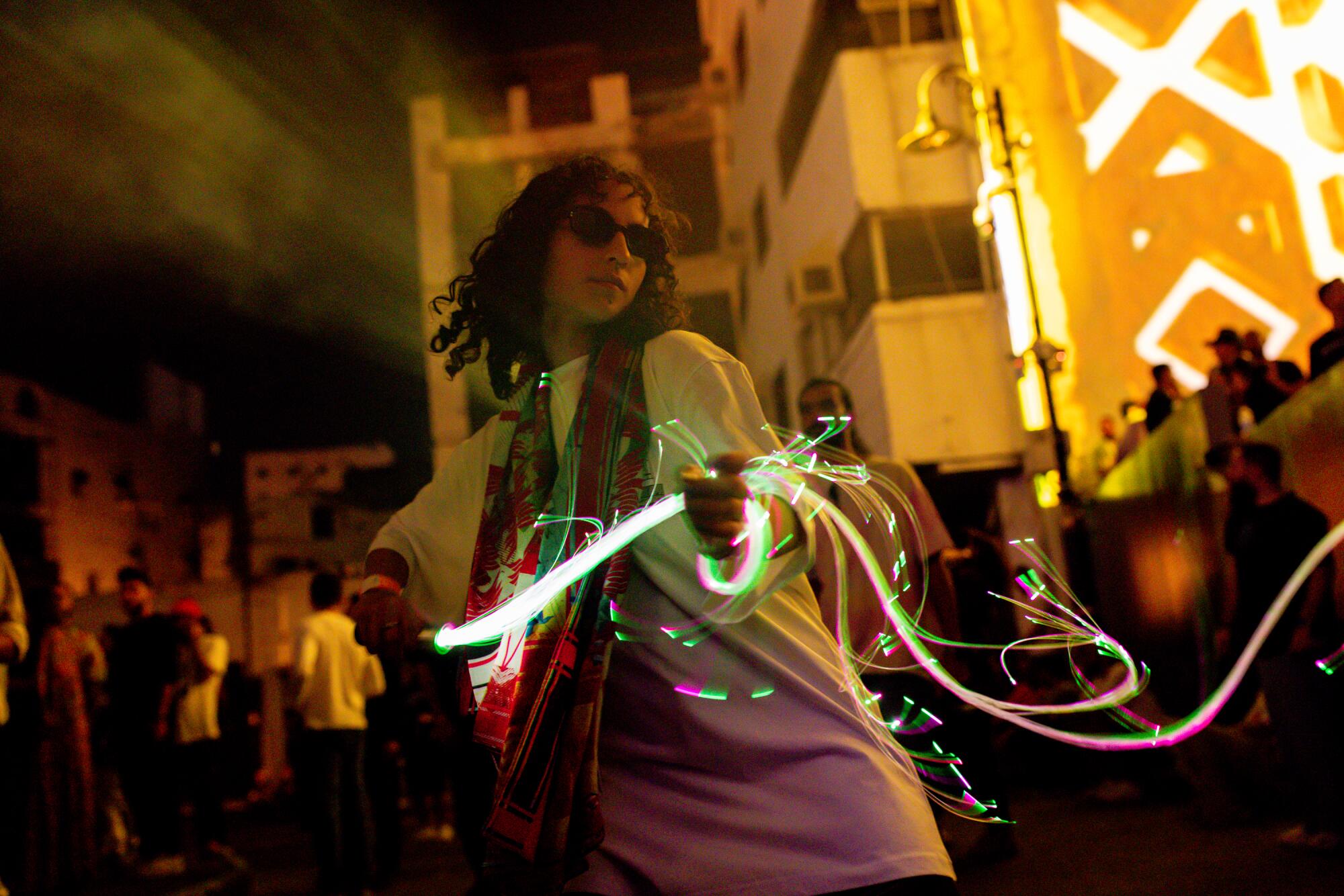
“Yes, it’s great the kids have more options now,” Mohammad Bukhari, a 43-year-old employee with the Saudi oil giant Aramco, said as he struggled with a giant inflatable banana while checking out the Japanese pavilion, his three children in tow. “But of course we have to be careful our children don’t get negative influences.”
International condemnation of the crown prince, which reached its apex after the Khashoggi killing, has also abated somewhat, despite the political suppression at home and state actions such as the biggest mass execution — 81 people on a single day in March — in the kingdom’s history. The Red Sea Film Festival this month attracted stars including Sharon Stone, Guy Ritchie, Shah Rukh Khan and Michelle Rodriguez. Saudi sovereign funds have poured investment into Amazon, Walt Disney and Nintendo, among others.
Last year’s Soundstorm had Human Rights Watch calling on performers and promoters to speak out against Saudi rights abuses “or refuse to participate in yet another one of Saudi’s reputation laundering schemes.”
Organizer Ammary dismisses that characterization of his event, which is just one of 3,800 that the Saudi General Entertainment Authority, a vast government department that the crown prince created in 2016 and that occupies multiple floors of the Ritz-Carlton in Riyadh, has spent billions of dollars organizing.
News Alerts
Get breaking news, investigations, analysis and more signature journalism from the Los Angeles Times in your inbox.
You may occasionally receive promotional content from the Los Angeles Times.
“This makes me roll my eyes. As if our only objective is to impress the world,” Ammary said. “We have 30-million plus people we have to make happy. This is investing in that.”
Mashari Sultan, an unemployed 19-year-old, would certainly agree. Dressed in white pants, a leather jacket, sunglasses and mismatched finger-less gloves, he smiled as he sashayed down the cobblestone path of the Balad in Jeddah.
“This is the first time I’ve ever gone out the way I want to dress. I felt courageous enough to dye streaks in my hair,” he said, giggling as he added that his parents didn’t know he was at Balad Beast.
“It’s everyone in their own way. My parents wouldn’t understand. We’re a different generation.”
More to Read
Sign up for Essential California
The most important California stories and recommendations in your inbox every morning.
You may occasionally receive promotional content from the Los Angeles Times.
